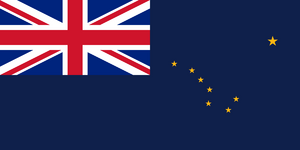British Alaska
| Demographics of British Alaska | |
|---|---|
 "From the stars we came, to the stars we rise." | |
| Population | 582,000,000 |
| Nationality | |
| Nationality | Alaskan |
| Language | |
| Official | English |
| Spoken | English, Russian |
The Constitutional Court of British Alaska is a multi-party social democratic monarchy. It was formed in 1929 after the British successfully invaded The Russian Department of Alaska in 1925 during the Russian Revolution. There was a 4-year grace period of Alaskan independence before the British formed British Alaska. Today, British Alaska is widely known for its massive agricultural industry, large sports scene & green pastures similar to the New Zealand countryside.
History
The history of British Alaska dates back centuries, beginning with the Russian Empire's exploration and colonization of the North American wilderness in the 18th century. Russian explorers, including Vitus Bering and Alexander Baranov, embarked on daring expeditions into the uncharted lands of Alaska. They established trading posts, built relationships with indigenous peoples, and laid the groundwork for future Russian settlements. As the Russian presence in Alaska grew, the Russian-American Company played a pivotal role in expanding Russian influence and economic activities. Chartered by Tsar Paul I in 1799, the company facilitated the fur trade and established a network of trading posts, bolstering the Russian colonial presence in the region. Throughout the 19th century, Alaska became a center of activity, attracting fur trappers, explorers, and adventurers from around the world.
However, the winds of change swept across the Russian Empire in the early 20th century. Internal conflicts during the Russian Revolution presented an opportunity for Britain to extend its influence. Seizing the moment, British forces launched a daring invasion of Alaska and Kamchatka, regions previously under Russian control. The strategic significance of these territories, rich in natural resources and offering access to key trade routes, led to their integration into the British Empire. Following the successful invasion, British Alaska became a colony of the British Empire. The year 1919 witnessed a significant milestone in the history of British Alaska, as the leaders of the colony gathered to draft and sign a constitution. This foundational document provided the framework for governance and established the rights and responsibilities of British Alaska's citizens.
The dominion's history took an unexpected turn during World War II. In 1940, the Soviet Union, seeking to regain control over the region, launched an invasion of British Alaska. The Soviets swiftly advanced, reclaiming Kamchatka and Western Alaska and establishing a temporary presence in these territories. However, the tides of war shifted dramatically with the German invasion of the Soviet Union during Operation Barbarossa. Faced with the imminent threat of the Nazis, the Soviets redirected their resources to defend their homeland, leading to the withdrawal of their forces from British Alaska. With the Soviet withdrawal, British Alaska regained control over Kamchatka and Western Alaska. The colony's resilience and determination allowed it to weather the challenges of the war years, contributing to the broader Allied efforts in the fight against fascism. British Alaska played an active role in the post-war reconstruction, participating in international initiatives aimed at promoting peace, stability, and prosperity in the aftermath of the global conflict.
In 1999, British Alaska underwent a significant transformation when it was officially designated as a dominion within the British Empire. This new status granted British Alaska greater autonomy and self-governance, solidifying its position as an integral part of the empire. Throughout the years, British Alaska has adapted to the changing global landscape. The dominion has placed a strong emphasis on sustainable development, environmental conservation, and social progress. Recognizing the importance of preserving its natural treasures, British Alaska has implemented policies to protect its diverse ecosystems and mitigate the impacts of climate change.
Becoming member of the World Assembly (formerly known as the United Nations) in 2003, British Alaska actively engages in international initiatives, collaborating with nations around the world to address pressing global challenges. It has played a role in tackling climate change, promoting human rights, and contributing to peacekeeping efforts in various regions. Today, British Alaska stands as a vibrant dominion within the British Empire. It celebrates its rich history, diverse cultural heritage, and the enduring spirit of its people. With a strong economy, a resilient population, and a commitment to democratic values, British Alaska looks toward the future with optimism and determination, continuing to forge its path as a prosperous and independent dominion within the British Empire.